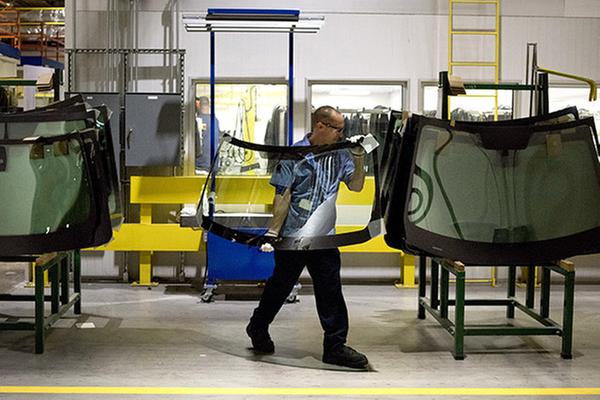Investment troubles tractable

 |
| An employee carries a rear windshield at the Fuyao Glass America production facility in Moraine, Ohio. [Photo/Agencies] |
Cao Dewang, president of the world's second largest auto glass manufacturer, has become a person in the public eye since he moved part of his company's operations to the United States, claiming that China's manufacturers shoulder a higher tax burden than those in the US.
There has been great controversy over Cao's US project, with some denouncing him as unpatriotic and some claiming that Cao's factory in the US has suffered from the low efficiency of its US employees.
However, we should not make a fuss over Cao's "troubles" in the US. Different cultures naturally lead to differences among employees from different countries in terms of their work ethic. Such things are a byproduct of economic globalization and among the costs an entrepreneur has to pay for overseas operations.
China's investments in the US reached $46 billion in 2016, while the investments it received from the US totaled $24 billion, both figures are a considerable rise on the amounts in the previous year. This testifies that although various problems may exist in two-way flow of investment between China and the US, they are viewed as tolerable by investors from both countries.
The problems Cao's project in the US has encountered should not be amplified into intractable ones for Chinese investors overseas. It usually takes time for the Chinese management personnel of overseas projects and local employees and local institutions to become mutually accommodating.
As Chinese investors will increasingly expand their global presence in the years ahead, more and more local destinations are expected to gradually reduce and abolish previous prejudiced policies and regulations against Chinese investments. What Chinese investors should do now is employ specialized agencies to make in-depth studies of the investment environment in the proposed destinations for their investments, especially the local legal systems before making an overseas investment move.
--Beijing Youth Daily

































